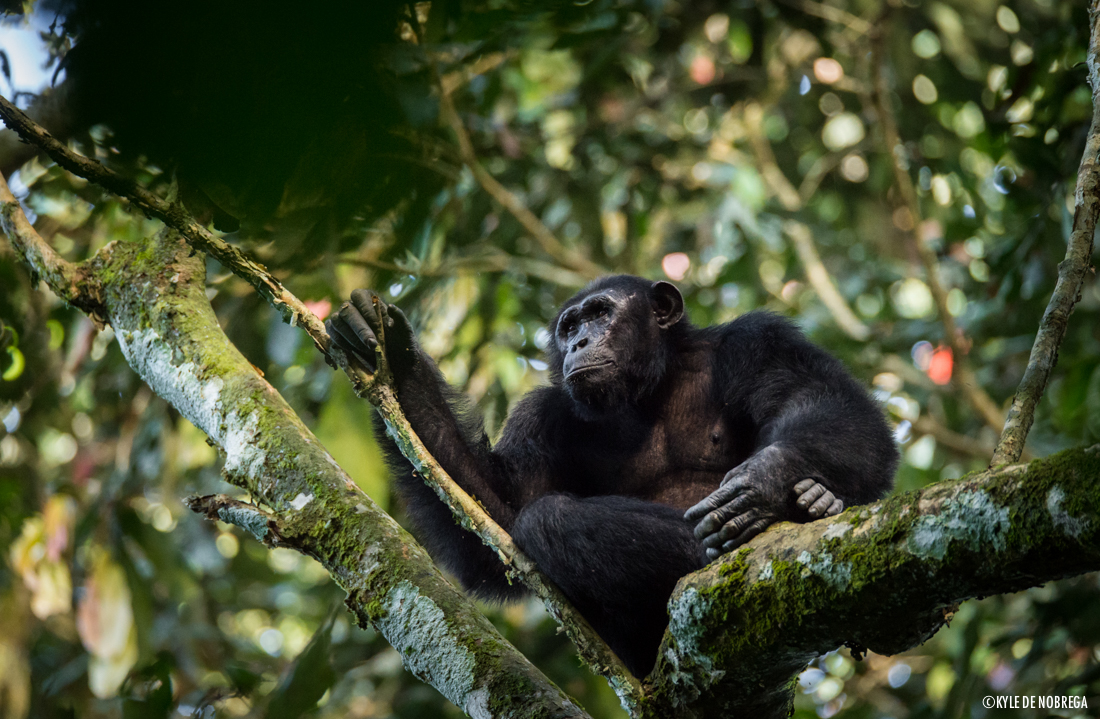
WCS Congo 2018 highlights
The past year has seen some significant advancements in our projects in the Republic of Congo. We were involved in the creation of a new national park in the Bateke Plateau, worked with the Congolese Government on the adoption of its National Action Plan for Elephants, and in Nouabale-Ndoki National Park the law-enforcement team brought some significant elephant poaching kingpins to justice. Here are some more of our highlights from 2018.
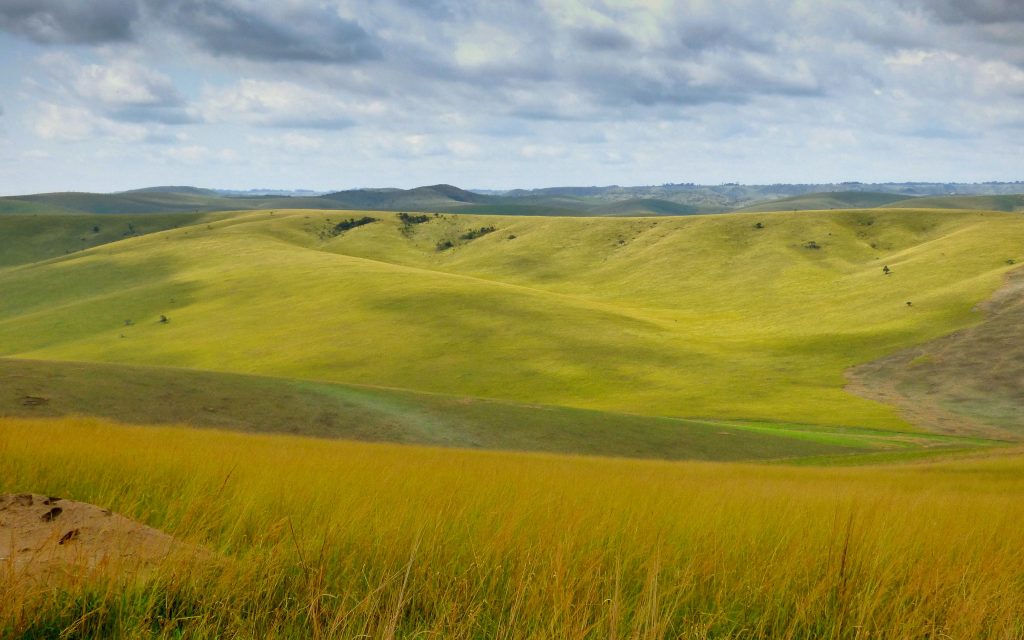
Creation of Congo’s 5th national park
In November the Ogooué-Leketi National Park was officially created. Bordering the Plateaux Batéké National Park in neighbouring Gabon it forms a transboundary protected area of over half a million hectares. It is part of the most southerly IUCN-designated Exceptional Priority Site for the protection of western lowland gorillas and central chimpanzees, and is of considerable ecological significance due to its location in the forest-savannah transition zone. It contains the headwaters of both the Ogooué river (which is the main river of Gabon) and the Leketi river, which feeds the Alima and eventually the Congo river. This new National Park lies in a unique landscape for Congo, dominated by vast rolling savannahs in the east, with green ribbons of gallery forest linking up to a larger rainforest block to the north and west. Since 2004, the Wildlife Conservation Society (WCS) and the Ministry of Forestry Economy have carried out detailed biological and socio-economic surveys in and around the proposed Ogooué-Leketi National Park (OLNP) to evaluate the conservation potential of this area, and to define the appropriate boundaries and benefits of the new protected area. Following the closure of the three logging concessions that overlapped the proposed protected area, Ogooué-Leketi has officially been declared Congo’s fifth National Park.
The communities living near the Ogooué-Leketi National Park have been involved in the process of creating the protected area since the project was launched, through an approach that ensured best practices of Free, Prior, and Informed Consent. The local communities and authorities from all villages bordering the Park in the districts of Zanaga and Bambama in the Lekoumou Provinve, and Lekana in the Plateaux Province, have expressed strong support for creating the Park from the outset. Planning was carried out together with the local communities using participatory social mapping – local communities conducted the mapping themselves. These maps were used to define and agree upon limits of an eco-development area as part of the Park and to agree on management rules for this area. The next steps will include drawing up a management plan that incorporates these local use areas and rules, and finalising conservation zoning that will protect OLNP’s great biodiversity.
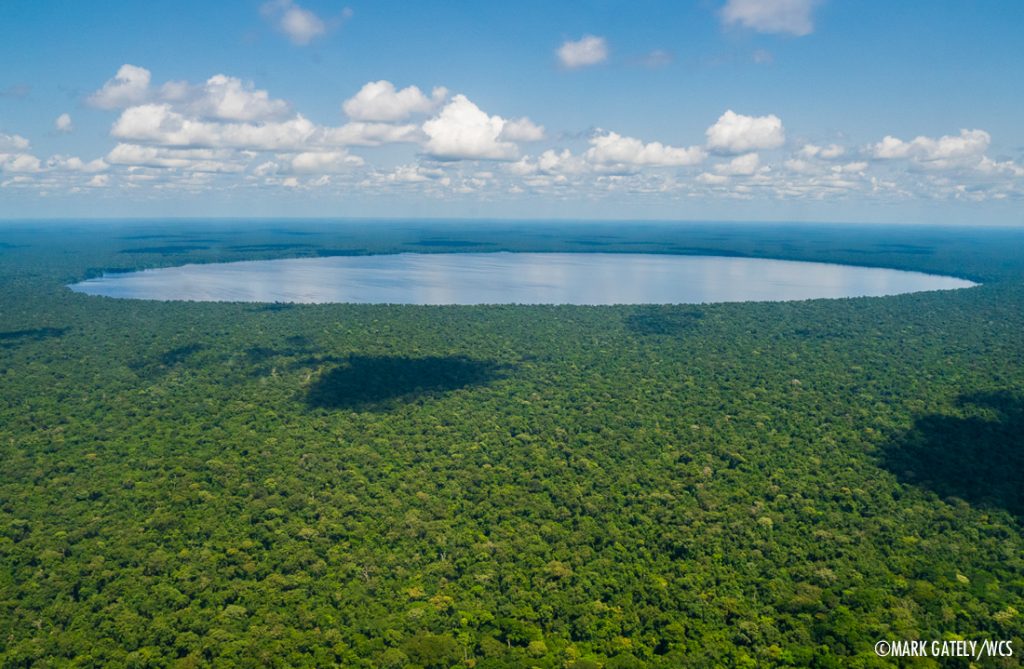
WCS Congo Aviation Program soars to new heights
In northern Congo our law-enforcement efforts are supported from the skies by a Cessna 206 aircraft. Following rehabilitation work completed in 2018 we now have fully functional airstrips in Kabo and Makao-Linganga, meaning that remote clearings & rivers in the Nouabale-Ndoki National Park can be surveyed within 15 mins flying time. The relaunch of the Congo Aviation Program has also made a huge difference in easing the logistics involved in getting to some of the remotes areas work in, such as Lac-Tele Community Reserve. In 2018 WCS carried out the first over flight, since the arrival of WCS’s Cessna 206 in Congo, of the perfectly round lake from which the reserve takes its name.
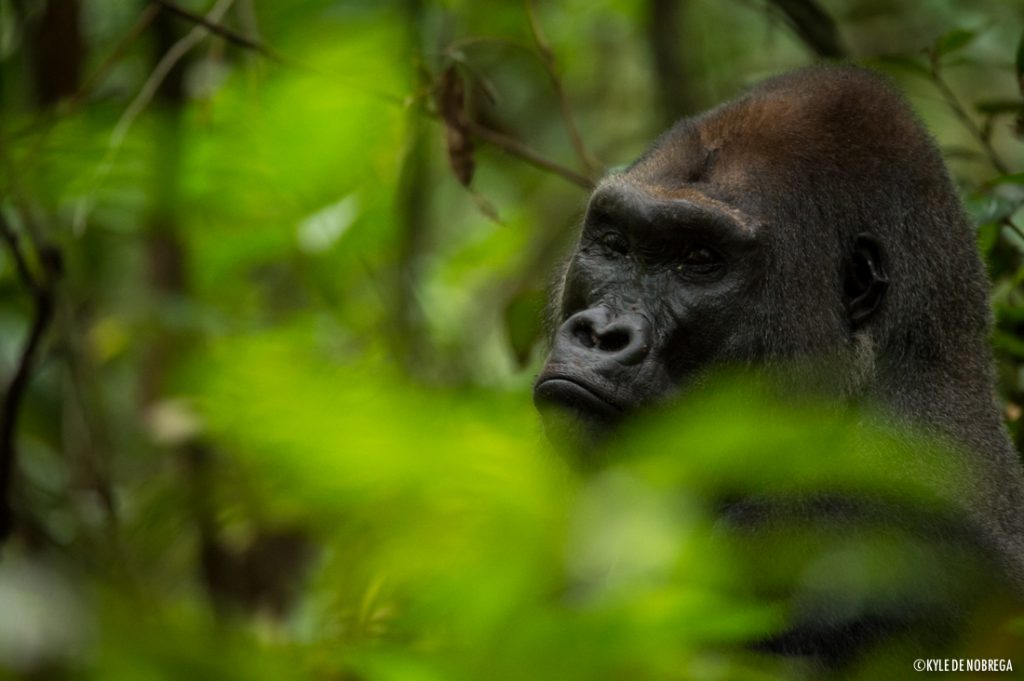
Kingo turns 40
In June, WCS celebrated the birthday of “Kingo” a silverback Western lowland gorilla estimated to be 40 years old and living in Mondika, near Nouabale Ndoki National Park, a protected area WCS manages in partnership with the Republic of Congo. First identified in 1999, Kingo was chosen to be habituated by researchers interested in learning more about the behavior and ecology of Western lowland gorillas. Over the past 17 years we have had the privilege to witness the daily life of Kingo and his family. He’s a father of 20 from nine different mothers. He’s a fierce defender of his family who helped nurse two of his offspring back from leopard attacks. He likes to nap with his feet in the air, and he hums while he eats.
During the 17 years that our teams have been observing Kingo and his group, huge advancements have been made in the way that data is recorded at our research sites. For decades, data at Mondika was collected with pen and paper, then transcribed into computers. This not only limited the amount and type of data that could be collected, but also limited who could do the data collection, to people with literacy and computer skills. Ba’Aka trackers who have worked with the gorillas for more than 20 years and have developed invaluable knowledge of gorilla behaviour are now receiving training on data collection thanks to the introduction of tablet technology. Even for trackers who have had no formal education, the intuitive easy-to-use nature of the tablets is enabling them to acquire new skills and they are being trained to collect scientific data. This new approach has inspired some, like tracker Donatien Mengonga, to go back to school and complete their education (supported by WCS). Others, like Gaston Abea, have progressed to be full research assistants at Mondika, playing a big role in inspiring other Ba’Aka to believe that research jobs are now a possibility.
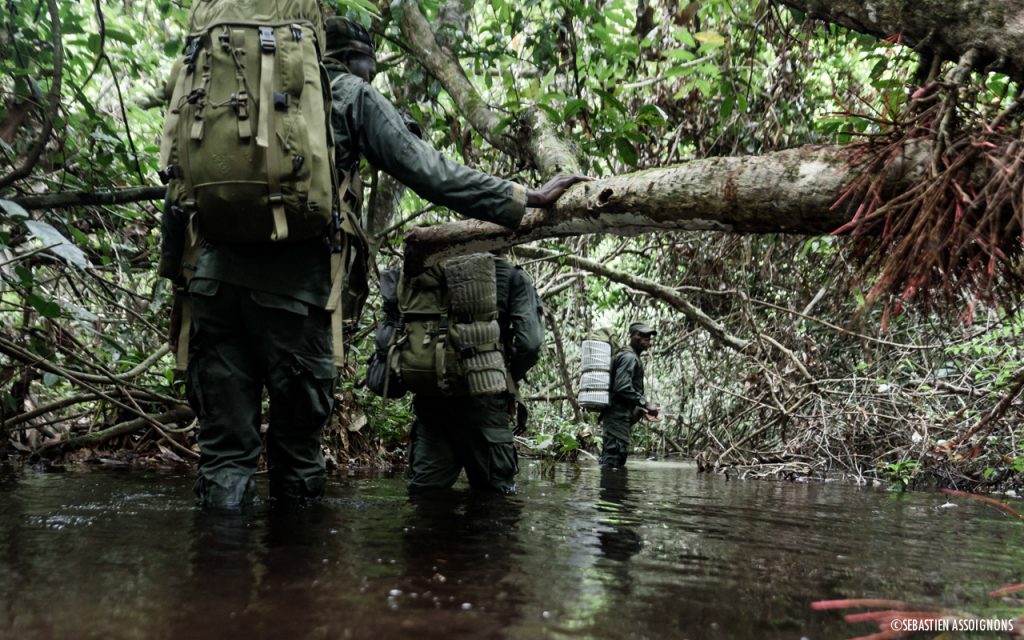
Law-enforcement investments bear fruit in Nouabale-Ndoki National Park
Poaching of elephants for ivory is a major threat to the wildlife of northern Congo. To tackle this threat, the Nouabalé-Ndoki National Park’s protection force benefited from extensive training and was bolstered by the addition of 20 new rangers in 2018. Park management is mentoring and overseeing this expanded ranger force to ensure that they carry out their mission in a professional manner, know how to protect themselves from heavily armed and ruthless poachers, and respect the law and human rights. These efforts are beginning to bear fruit with over 100 arrests and some significant elephant poaching kingpins brought to justice by the park’s law-enforcement team over the past year.
In November a notorious Congolese poacher, Leonard Beckou, and his gang conducted poaching raids close to villages, sparking fear within local communities, and highlighting the negative impact of elephant poaching and the ivory trade not only on elephants, but also on people. Their poaching exploits attracted the attention of several Park research camps and a local community – four reports of large caliber gunshots were registered at the Park headquarters. These alerts sparked a joint operation with the local Congolese Armed Forces and police, and over the course of three days, Beckou’s gang was meticulously pursued by some of the park’s tracking specialists, and finally arrested. As the rangers brought the poachers in to the park’s headquarters for questioning, dozens of community members rallied behind the convoy singing and chanting, saluting the rangers for not only arresting these poachers, but for also securing their lands and forest.
At their court hearing all four poachers were given the highest sentence for wildlife crime in Congo: five years in jail and a fine of 5,000,000 XAF each ($10,000 USD). In an unprecedented ruling the judge also declared that the four convicts would be transferred south to serve their sentences in Brazzaville, far out of sight from the northern poaching networks. All of the other wildlife crime cases brought before the district court the same day were issued the maximum penalty for wildlife crime. A WCS-led study of wildlife crime cases brought before Congo’s courts between 2008 and 2017 found an increase in maximum sentences for wildlife crime being delivered by the courts, which have proliferated in the past few years – showing a shift in the severity in which wildlife crime is now regarded in the Republic of Congo thanks to the efforts of both the Government and NGO partners.
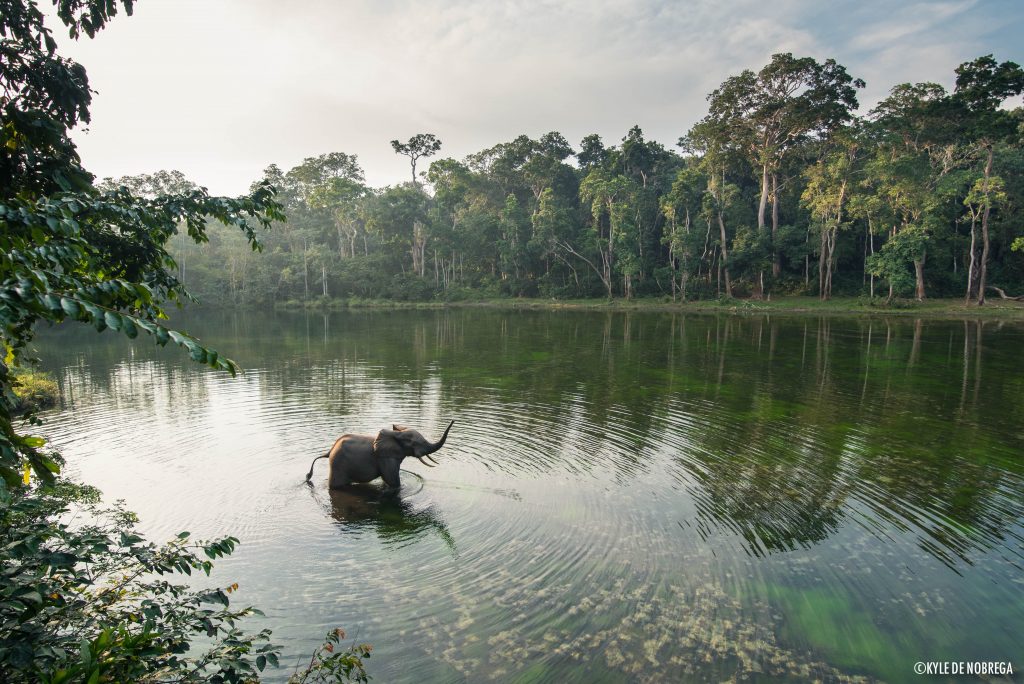
Congo adopts its National Action Plan for elephants
In August, the Republic of Congo adopted its National Action Plan for Elephants (NAPE), a huge step forward for elephant conservation in the country. The workshop to validate and adopt the NAPE, held under the patronage of Mrs Rosalie Matondo – the Minister of Forestry Economy – brought together over 60 participants representing the Congolese government, the private sector and civil society. Covering the coming ten years, the NAPE outlines the strategy to: combat elephant poaching; conserve elephant habitat, reduce human-elephant conflict; raise awareness within public institutions and local and indigenous communities; as well as ensure collaboration between States. The Republic of Congo has been at the fore of conservation leadership in Central Africa for many years, protecting its wildlife under innovative management models. In 2016 Congo became the 11th state to join the elephant protection initiative, an African-led, results based conservation program working to eradicate the ivory trade and stop the continued slaughter of the continent’s elephants by poachers.
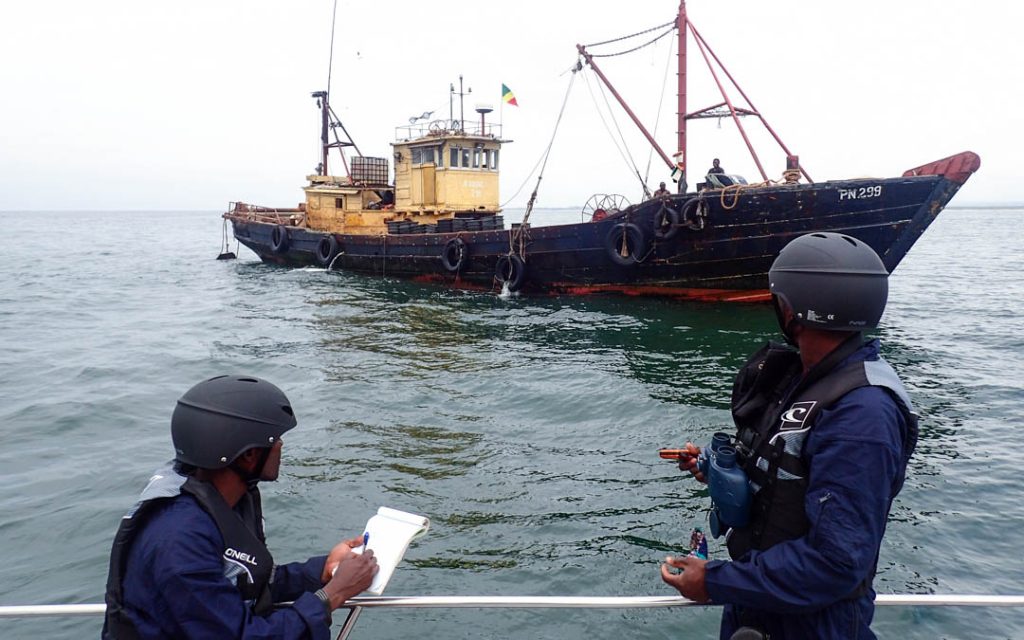
Training boosted for marine law-enforcement teams
In December a new specialised marine law-enforcement team headed to sea to protect Congo’s fish stocks and biodiversity following surveillance training provided by WCS Congo’s Marine Program through support from the U.S. Fish and Wildlife Service. A marine surveillance assessment carried out in July 2018 identified needs for the improvement of marine patrols by the Direction Départementale de la Pêche et de l’Aquaculture (DDPA) of Pointe Noire, the authority responsible for fisheries monitoring and law-enforcement in Congo. At the same time a study carried out by Exeter University, in partnership with WCS Congo, estimated that over two billion FCFA (~3,500,000 USD) would have been generated since 2006 if illegal fishing vessels had been fined the minimum penalty for infractions of fisheries laws. In order to tackle both biodiversity and fish stock loss, and the shortfalls resulting from the lack of law enforcement, two training modules were designed by the WCS Congo Marine Program to meet the needs identified by the assessment, which are to improve the planning and execution of patrols and enhance the safety of surveillance operations at sea. In November 2018, WCS Congo and a WCS marine conservation expert, Dr Richard Parnell, organized the first training for the DDPA Fisheries Brigade’s top employees, who after completion of the course will form a specialized marine law-enforcement unit.
Thank you to all our donors, partners and supporters for all you do to make our work possible.


Linda Badham
ALL ANIMALS WORLDWIDE NEED MORE RESPECT , CARE AND PROTECTION. TOO MUCH EVIL IN THIS WORLD DONE TO ANIMALS AND IT MUST BE STOPPED !!